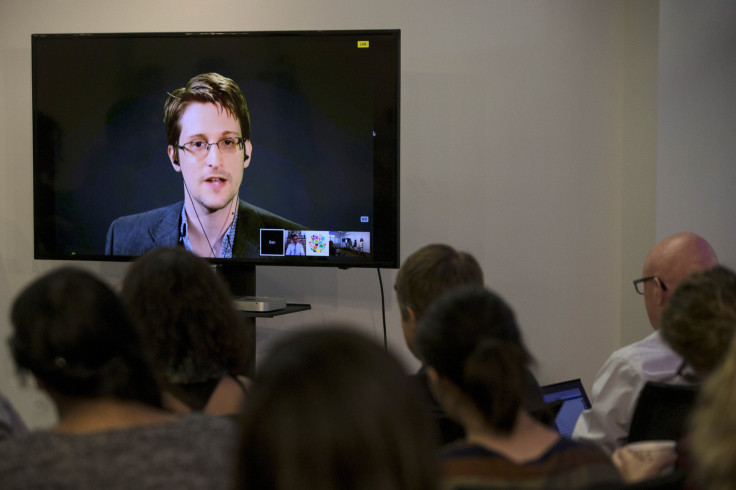Edward Snowden Unveils Global Privacy Treaty To Ban Surveillance

A group of privacy advocates, including former NSA whistleblower Edward Snowden, unveiled a campaign Thursday for a new global treaty against government mass surveillance.
The International Treaty on the Right to Privacy, Protection Against Improper Surveillance and Protection of Whistleblowers, colloquially known as the Snowden Treaty, calls on signatories to “enact concrete changes to outlaw mass surveillance,” increase oversight against state surveillance efforts, and develop “international protections for whistleblowers,” according to the Intercept.
It calls on signatory nations to ban the mass collection or surveillance of data, and provide asylum to whistleblowers, including those from non-signatory states.
“This is the beginning of work that will continue for many years,” Snowden said via teleconference at a press conference in New York. “We’ve established at least the bare facts of what’s going on in the arena of our basic liberties...we need to think about what the actual proposals that we’re going to put forth will be," he added, according to Al Jazeera.
The press conference and the push for the treaty were led by global activist group Avaaz, which presented the document along with Snowden and journalist Glenn Greenwald, as well as other reporters and activists.
“This campaign offers the opportunity to put pressure on governments to adopt a treaty that pushes back against mass surveillance, and also makes clear that individuals who expose corruption should not be subject to the retribution of political leaders,” Greenwald said, according to the Intercept.
Civil liberties advocate David Miranda said that the full details of the treaty were not yet ready to release, and that a handful of governments were reading a draft of the proposal and were due to give feedback. He said that several of the countries reviewing the draft were likely to come forward soon, and hoped that public pressure might inspire others to join them.
“It’s a matter not of what the country wants, but what the people of the country want,” Miranda said.
The move comes after the United Nations created the new position of the Special Rapporteur on the right to privacy in July, currently filled by Joseph Cannataci, who has taken a strong stance against global surveillance.
In August, Cannataci told the Guardian that British surveillance oversight is “a joke,” and described the situation as being worse than anything George Orwell could have imagined. He has called for a new global law modeled after the Geneva Conventions that would strengthen privacy rights around the world.
© Copyright IBTimes 2024. All rights reserved.











